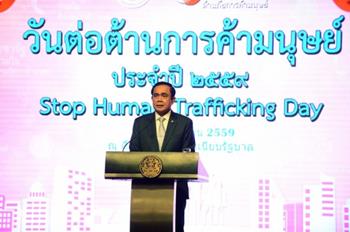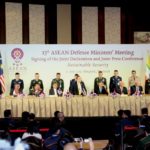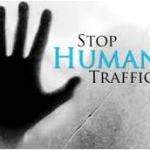
Prime Minister Prayut Chan-ocha stepped up pressure on police and prosecutors last week insisting they must accelerate their investigations into human trafficking and bring the criminal syndicates behind the slave trade to justice, while also pledging to give greater care to victims of trafficking.
The Prime Minister made his remarks during a speech at Government House in Bangkok last Monday to mark “Stop Human Trafficking Day.” The event was designed to raise awareness among the public and was organized by the Ministry of Social Development and Human Security, which is the lead ministry in the government’s comprehensive and crosscutting campaign to end modern-day slavery in Thailand.
“Although the number of cases has increased and investigations need to be sped up so the problem can be addressed. Authorities have to solve related cases soon,” Prayut said before an audience of foreign ambassadors, diplomats and members of international organizations.
The Prime Minister also used the occasion to sign several memoranda of understanding with United Nations agencies to boost cooperation in the fight against human trafficking and labor abuse.
In 2014, Thailand was downgraded to Tier 3, the lowest rung in the annual rankings by the United States Department of State in its Trafficking in Persons Report. The assessment period for that ranking took place during the term before the current government. Since then, the current government has launched a raft of wide-ranging measures, including prosecuting officials suspected of involvement in trafficking, to stamp out the scourge of slavery in the Kingdom.
The State Department is currently assessing the measures Thailand has taken for its upcoming Trafficking in Persons Report. Recently, however, the Thai government was given a B rating in The Global Slavery Index published by the independent Walk Free Foundation, indicating that the government is not among the nations that have not met minimum standards to eliminate trafficking. The section on Thailand acknowledged the many steps the Thai government has taken and issued recommendations for improving the response.
“Despite the challenges that remain, what is different or achieved under this government compared with past governments is that human-trafficking culprits, including government officials, face the prospect of more several criminal penalties as a result of amendments passed to the Anti-Human Trafficking Law in 2015,” the Bangkok Post wrote in an editorial last week.
“While the number of prosecutions against government officials has increased since 2014, Gen Prayut is right in saying that investigations and resolution of cases need speeding up. In the largest trial of human traffickers in Thai history – the Rohingya trafficking and mass graves cases – 92 suspects have been identified. Several have been arrested while 22 officials are accused of trafficking,” the Post wrote.
Image: www.banmuang.co.th




